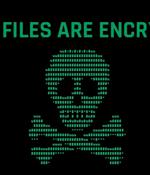Security News

The Federal Bureau of Investigation is warning that ransomware threat actors are targeting casino servers and use legitimate system management tools to increase their permissions on the network. [...]

18 months in the slammer no laughing matter, but the rest... maybe A 34-year-old woman has been jailed for 18 months after trying to use Rentahitman.com – no, really – to pay a contract killer to...

Of course, he would say that, wouldn't he? As the expiration date for the Feds' Section 702 surveillance powers draws closer, FBI Director Christopher Wray has warned a US Senate committee that...

The FBI warns that cybercriminals are using spoofed emails and phone numbers to target plastic surgery offices across the United States for extortion in phishing attacks that spread malware. "Cybercriminals use open-source information, to include social media, and social engineering techniques to enhance the harvested ePHI data of plastic surgery patients," the FBI said.

CISA, FBI, and MS-ISAC warned network admins today to immediately patch their Atlassian Confluence servers against a maximum severity flaw actively exploited in attacks. On October 4, when it released security updates, Atlassian advised customers to upgrade their Confluence instances as soon as possible to one of the fixed versions as the bug was already exploited in the wild as a zero-day.

The AvosLocker ransomware gang has been linked to attacks against critical infrastructure sectors in the U.S., with some of them detected as recently as May 2023. That's according to a new joint...

The U.S. government has updated the list of tools AvosLocker ransomware affiliates use in attacks to include open-source utilities along with custom PowerShell, and batch scripts. AvosLocker ransomware affiliates are known to use legitimate software and open-source code for remote system administration to compromise and exfiltrate data from enterprise networks.

The FBI issued a public service announcement warning of a significant increase in 'phantom hacker' scams targeting senior citizens across the United States. "This Phantom Hacker scam is an evolution of more general tech support scams, layering imposter tech support, financial institution, and government personas to enhance the trust victims place in the scammers and identify the most lucrative accounts to target," the FBI said.

The U.S. Federal Bureau of Investigation (FBI) is warning of a new trend of dual ransomware attacks targeting the same victims, at least since July 2023. "During these attacks, cyber threat actors...

The FBI has warned about a new trend in ransomware attacks where multiple strains are deployed on victims' networks to encrypt systems in under two days. Variants used in these dual ransomware attacks include AvosLocker, Diamond, Hive, Karakurt, LockBit, Quantum, and Royal.